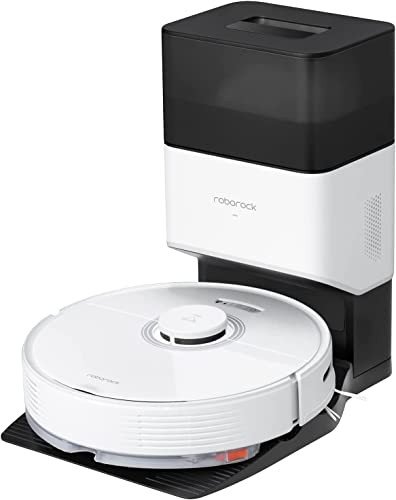10 Key Factors About Bagless Robot Vacuum You Didn't Learn At School

The Rise of Bagless Robot Vacuums: Revolutionizing Home Cleaning
Over the last few years, home cleaning has evolved significantly with advancements in innovation, particularly in the world of vacuum. Among the most ingenious changes is the introduction of bagless robot vacuums. These small, automated cleaning gadgets are designed to make keeping a clean home more efficient and user-friendly. This post explores the functions, benefits, and considerations of bagless robot vacuums, helping consumers make notified decisions about home cleaning services.
What is a Bagless Robot Vacuum?
Bagless robot vacuums are autonomous cleaning gadgets that operate without the need for conventional dust bags. Instead, they gather dirt and debris in an onboard container that can be emptied when full. This style enhances convenience, as users do not require to buy replacement bags or stress over disposal. They are especially interesting those trying to find a low-maintenance cleaning solution.
Key Features of Bagless Robot Vacuums
- Smart Navigation: Bagless robot vacuums utilize sensors and algorithms to draw up a cleaning location, avoiding obstacles and efficiently covering surfaces.
- Arranging Capabilities: Many designs enable users to set cleaning schedules, ensuring that floors are preserved even when house owners are away.
- Multiple Cleaning Modes: They may provide different cleaning modes for various tasks, such as spot cleaning, edge cleaning, and deep cleaning.
- Self-Charging: Most bagless robot vacuums can go back to their charging stations when their battery is low, guaranteeing they are always ready for cleaning.
- Push-button control: Many designs can be managed by means of mobile phone apps, supplying users with the capability to begin or stop cleaning sessions remotely.
The following table sums up some popular models of bagless robot vacuums and their specifications:
| Model | Battery Life | Dustbin Capacity | Smart Features | Price |
|---|---|---|---|---|
| iRobot Roomba 675 | 90 minutes | 0.6 liters | App control, voice assistant | ₤ 299 |
| Eufy RoboVac 11S | 100 mins | 0.6 liters | One-touch control | ₤ 219 |
| Neato Botvac D7 | 120 mins | 0.7 liters | Smart mapping, no-go lines | ₤ 599 |
| Roborock S6 Pure | 150 mins | 0.48 liters | App control, virtual barriers | ₤ 399 |
Benefits of Bagless Robot Vacuums
Bagless robot vacuums provide numerous benefits over conventional vacuums and bagged models. Here are some crucial advantages:
- Cost-Effective: Without the need to acquire replacement bags, users can save cash in the long term.
- Eco-Friendly: The absence of non reusable bags indicates less waste produced, making bagless alternatives a more ecologically friendly choice.
- Simple and easy Maintenance: Many bagless models include washable filters, reducing maintenance inconveniences.
- Practical Cleaning: Automated cleaning schedules and hands-free operation substantially decrease the time and effort required for home cleaning.
- Advanced Features: Bagless robot vacuums frequently come equipped with modern innovation, offering different smart features and personalization options.
Factors to consider When Choosing a Bagless Robot Vac uum
While bagless robot vacuums offer numerous benefits, there are likewise potential drawbacks to consider. Here are some factors customers must take into account:
- Dustbin Capacity: Bagless vacuums need regular emptying, specifically in homes with family pets or high traffic. Buyers should consider dustbin size relative to their cleaning frequency.
- Suction Power: Not all models offer the exact same suction abilities. Customers must try to find vacuums with strong suction for efficient cleaning on numerous surfaces.
- Sound Level: Some models might be louder than standard vacuums. Noise level can be an essential aspect, especially in settings where quiet operation is desired.
- Floor Types: Users should confirm that the vacuum is ideal for their floor covering mix, such as carpet, hardwood, or tile.
- Upkeep: Bagless robot vacuums may require regular upkeep, consisting of cleaning brushes and filters, to keep optimum performance.
Frequently Asked Questions about Bagless Robot Vacuums
Q1: How typically should I clear the dustbin of a bagless robot vacuum?
A1: It is recommended to empty the dustbin after every cleaning session, especially if you have animals or high traffic areas. Keeping the dustbin less than complete makes sure optimal suction and performance.
Q2: Can bagless robot vacuums efficiently clean carpets?
A2: Yes, lots of bagless robot vacuums are created particularly for carpets and have adjustable suction modes for different floor types. However, it is necessary to examine maker specifications for carpet cleaning capabilities.
Q3: Are bagless robot vacuums appropriate for animal hair?
A3: Many designs are created with effective suction and specialized brushes to effectively pick up pet hair. Consumers must look for vacuums particularly marketed as pet-friendly for ideal efficiency.
Q4: How long do bagless robot vacuums normally last?
A4: The life expectancy of a bagless robot vacuum can differ, however many designs last between 3 to 5 years with proper care and maintenance.
Q5: Is it essential to replace filters in a bagless robot vacuum?
A5: Yes, most bagless robot vacuums have filters that should be changed or washed periodically. This upkeep helps preserve suction and improves air quality.
Bagless robot vacuums have actually transformed the landscape of home cleaning, providing efficient, economical, and environmentally friendly services for maintaining cleanliness. With functions that boost user experience, these smart gadgets offer a practical option to standard vacuum. When choosing a bagless robot vacuum, consumers should consider their specific cleaning requirements and choices, as well as the vacuum's abilities, to discover the ideal design for their home. As innovation continues to advance, the capabilities of bagless robot vacuums are most likely to progress even more, making them an even more important addition to contemporary households.

